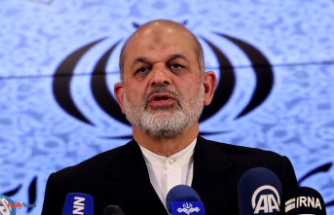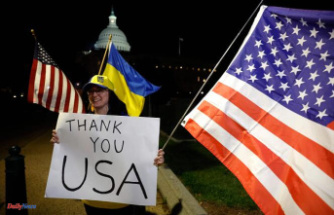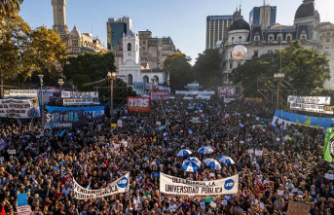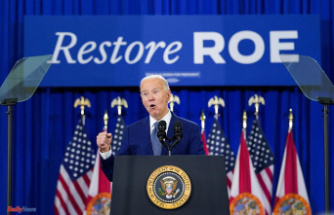European countries, who left an Afghanistan block last week, will try to open a unique office in Kabul as soon as possible if the circumstances of security allow it. The outdoor ministers of the 27, gathered this Friday in Slovenia, so they have announced it. The exact details will be profiled according to advancing the talks and dealing with the Taliban Government, which is about to be formed. But the idea is to have an office, an informal embassy, from which to coordinate the interlocution and allow diplomats and community officials to continue doing the work they did before the fall of the country and promote the evacuation of hundreds of people who continue to trapped. "Operational commitment" or "operational relationship", they have called it.
This has explained this Friday the High Representative for Union Foreign Policy Josep Borrell. The idea was floating days in offices and ministers have agreed to reestablish a kind of delegation, but without any official status. Cooperation has indicated Spanish, will depend on the attitude, behavior and decisions of the Taliban Government. Borrell has enunciated the five conditions set by Europeans to be able to work. It is not about recognizing the Taliban government, but of pragmatism. Europeans want to take away many people from the country yet and, accept, the only way is negotiating with whoever holds power.
But to go beyond the Taliban should commit themselves with not exporting terrorism, respecting human rights, press freedom and the rule of law. They should establish an inclusive government, in political terms, non-public. Allow the arrival and delivery of humanitarian aid and, above all, allow them to leave those who want to leave the country. "Some will say that the Taliban will not meet these conditions, let's see, our dialogue will depend on it, the most urgent thing is to evacuate the several thousand people waiting, it was not possible to do it by plane, but we know who they are, they worked. With us or to democratize Afghanistan and we want to take them out, and that is not possible without talking to the Taliban. It is easier to negotiate being in the city than by videoconference, do it face to face. If it can not be in Kabul, because in Qatar. We are going to open a delegation or embassy with head of delegation as if nothing had happened, but we can have an antenna to work at least in the most urgent: evacuation.
The High Representative has not given more details of when he aspires to form that liaison office, how many people would be part of the team and if there were only experts from the EU's external action service or professionals of each capital. It is an idea, a project, and everything will depend on the contacts that are being maintained at all times, but for now at a distance or from other latitudes. The EU does not want to have ambassadors in a country whose executive does not recognize, but different countries can attempt more classical formulas, such as in the past, using aggregates, lower category personnel or intermediaries.
The second element that comes out of the meeting of ministers is the interest in establishing a meeting point with the neighbors of Afghanistan. Some have called it regional conference, but Borrell has rejected the terminology. "I would not call this a regional conference, but a coordination platform between the EU and the neighbors of Afghanistan, because we are going to have to work for a long time together. By crime, emigration, terrorism. Two weeks, they are structural problems to approach, "he said.
The background issue right now, however, is perhaps another: money. The nascent government does not have just its own resources, the organizational structure has been decimated and the accounts are dry. Almost half of the population needs foreign aid, according to Community calculations. The Taliban need money, a lot of money, to keep the country underway, pay the salaries of public workers and avoid even greater chaos, and they do not have it. The EU plays with that trick to be able to negotiate. "We will increase humanitarian aid, but we will evaluate the result according to access that they give us," said Spanish. Asked on whether the twenty-seven will take care of the public payroll, what was de facto occurred before the fall of the capital, the answer has been quick: "Why should we pay those salaries? Before it was a completely different situation." But Community sources point to those games as a key to the beginning of dialogue in the coming weeks.
Date Of Update: 04 September 2021, 09:08











